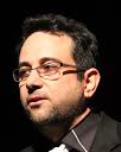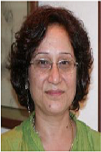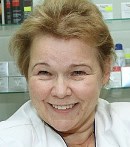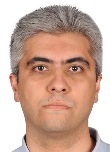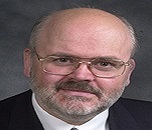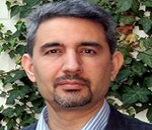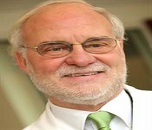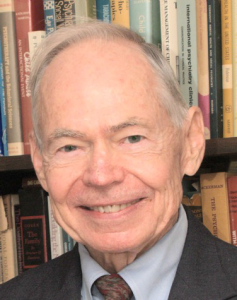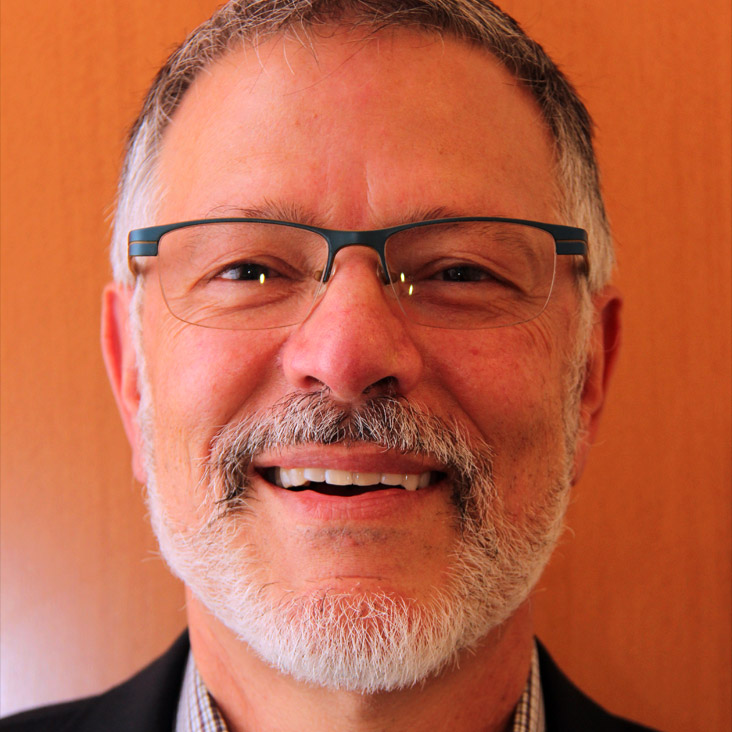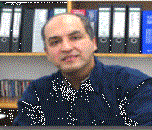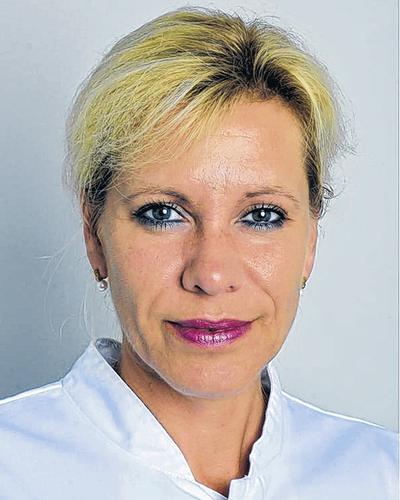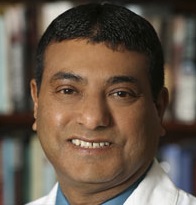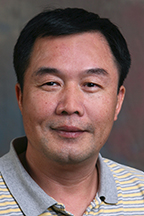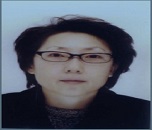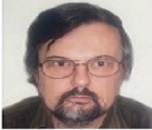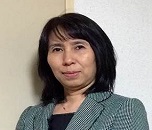Theme: Bridging the Gap between Past, Current and Future Prospects of Cancer Therapies
Euro Cancer 2017
Track 1: Radiation Oncology
The branch of Oncology dealing with Radiation therapy is termed as Radiation Oncology. The Radiotherapy is broadly segmented into Teleradiotherapy, Brachy-radiotherapy and Metabolic Radiotherapy. Tele-radiotherapy, also called as External transcutaneous / distant radiotherapy, is a method in which the radiation source is situated at a certain distance from the tissue to be treated. Brachytherapy, also termed as Short direct radiotherapy /Curitherapy, is a method in which radiation source can be placed in contact with the tumor or it can be implanted in the tumor. Curative radiotherapy is indicated to be used in: Sticker’s sarcoma, Mastocytomas with particular locations, such as ears, nose, extremities, eyelids; Nasal cavity adenocarcinoma and Anal gland adenocarcinoma. Stereotactic radiosurgery is a single-day procedure for treating small intracranial lesions. Metabolic radiotherapy represents the administration of isotopes or isotope carrying molecules that selectively concentrate in a certain tissue into which they enter as metabolites. For Example; iodine-131is used in treating Thyroid cancer; phosphorus-32 is used in treating Myeloproliferative disorders.
Related: Radiation Oncology Conferences | Anti-Cancer Therapy Conferences | Oncology Conferences | Oncology Events | Oncology Meetings |
Radiology and Oncology Conference Oct 19-20, 2017 New York, USA; 2nd Nuclear Medicine & Radiation Therapy Conference July 27-28, 2017 Rome, Italy; 2nd Cancer Diagnostics Conference and Expo November 27-28, 2017 Dubai, UAE; Cancer Biology R&D and Market June 21-22, 2017 Philadelphia, USA; 25th World Cancer Conference Oct 19-21, 2017 Rome, Italy; European Cancer Congress 2017 January 27- 30, 2017 Amsterdam, Netherlands; IRA 2017 — Innovation in Radiation Applications 2017 Apr 20-22, 2017Wollongong, Australia; European Society For Therapeutic Radiology And Oncology May 5- 9, 2017 Vienna , Austria; Mayo clinic Radiation Oncology : current practice and Future Direction 2017 January 9-13, 2017, Maui, United states; 10th Annual International Symposium On Stereotactic Body Radiation Therapy And Stereotactic Radiosurgery 2017 February 24- 26, 2017 Lake Buena Vista ,United States
Track 2: Anti-Cancer Therapy
There are more than 200 types of cancer, including Breast cancer, skin cancer, lung cancer, colon cancer, Prostate cancer, and lymphoma. Symptoms and Treatment varies depending on the type of Cancer. Some people with cancer will have only one treatment. But most people have a combination of treatments, such as surgery with chemotherapy and/or radiation therapy.The Anticancer therapies include Surgical therapy, Chemotherapy, Adjuvant therapy, Neoadjuvant therapy, Palliative therapy, Immunotherapy, Hormonal therapy, Radiotherapy, Nutritional therapy, Phototherapy. Phototherapy / proton beam therapy is the most advanced among all the therapies. All Anticancer agents act by disturbing cell multiplication or normal functioning, DNA synthesis or chromosomal migration, and by blocking or changing RNA and protein metabolism.
Related: Radiation Oncology Conferences | Anti-Cancer Therapy Conferences | Oncology Conferences | Oncology Events | Oncology Meetings |
2nd International conference on Antimicrobial Agents and Chemotherapy October 19-20, 2017 Atlanta, Georgia, USA; 2nd International conference on Tumor & Cancer Immunology and Immunotherapy July 17-19, 2017 Chicago, USA; 3rd International Conference on Drug Discovery & Designing September 25-27, 2017 Vienna ,Austria; 8th International Conference on Blood Cancer & Treatment June 26-27, 2017 London, UK; 3rd International Conference and Expo on Drug Discovery & Designing September 25-27, 2017 Vienna ,Austria; IRA 2017 — Innovation in Radiation Applications Apr 20- 22, 2017Wollongong, Australia; RadAsia 2017 — RadiologyAsia 2017 May 18-20, 2017 Singapore, Singapore; Mayo clinic Radiation Oncology : current practice and Future Direction 2017 January 9-13, 2017, Maui ,United states; Ecco European Cancer Congress 2017 January 27- 30, 2017 Amsterdam , Netherlands; 11th International Symposium On Regional Cancer Therapies 2017February 18- 20, 2017 Snowbird , United States
Track 3: Cancer
Cancers may be Benign or Malignant. Benign Cancers fail to spread to other tissues and are non-life threatening. Malignant tumors are invasive and spread to other tissues within the body. Various types of tumors are reported till date and many are under research investigation. Some tumors are named after discoverer, which include Wilm's Tumor (a childhood kidney cancer), Hodgkin's disease (a type of lymphoma), Kaposi's sarcoma (cancer of blood vessels, rare except associated with immunodeficiency and HIV infection). Some Cancers are divided into groups according to the type of cell they start from.
- Carcinomas are cancers of epithelial cells
- Sarcomas represent tumors of connective tissues
- Leukemias and Lymphomas refer to Cancers of blood cells
Organ specific Cancers include Lung Cancer, Brain Cancer, Heart tumors and many more. Endocrine Cancers include Pituitary Cancer, Thyroid Cancer, Parathyroid Cancer, Adrenal Cancers. Gastrointestinal cancers include Liver cancer, Gall bladder cancer, Pancreatic Cancer, Gastrointestinal Cancer, Colorectal Cancer, Rectal cancer, Anal cancer.
Related: Radiation Oncology Conferences | Anti-Cancer Therapy Conferences | Oncology Conferences | Oncology Events | Oncology Meetings |
World Congress on Preventive Oncology July 20-21, 2017 Chicago, USA; 6th International Conference on Clinical and Medical Case Reports October 16-18, 2017 San Francisco, California, USA; International Conference on Oral, Mouth and Throat Cancer August 15-17, 2016 Portland, Oregon, USA; 2nd Contemporary Issues in Women Cancers and Gynecologic Oncology Aug 28-29, 2017 London, UK; 25th World Cancer Conference Oct 19-21, 2017 Rome, Italy; 6th Asia-Pacific Breast Cancer Summit 2017 February 17-19, 2017 Hong Kong S.A.R., China; European Lung Cancer Conference 2017May 5-8, 2017Geneva , Switzerland; 12th Annual Ontario Thoracic Cancer Conference 2017April 7-9, 2017Niagara-On-The-Lake, Canada; Perspectives In Lung Cancer : 18th European Congress 2017 March 3-4, 2017 Madrid , Spain; Ecco European Cancer Congress 2017 January 27- 30, 2017 Amsterdam , Netherlands
Track 4: Radiation Biology
Radiobiology (also known as radiation biology) is a field of clinical and basic medical sciences that involves the study of the action of ionizing radiation on living things. Ionizing radiation is generally harmful and potentially lethal to living things but can have health benefits in radiation therapy for the treatment of Cancer and Thyrotoxicosis. Radiation biology is closely related to Free radical biology since 70-80% of the effect of radiation on cells is due to the production of free radicals. High doses of radiation are used to destroy cancer cells. Side effects occur because Radiation can also damage healthy cells and tissues near the treatment area. Common biological Effects of Radiation include Skin Reddening (Erythema), Hair loss, Cancer, CNS damage, Cataracts. Today, major advances in radiation technology have made it more precise, leading to fewer side effects.
Related: Radiation Oncology Conferences | Anti-Cancer Therapy Conferences | Oncology Conferences | Oncology Events | Oncology Meetings |
2nd Nuclear Medicine & Radiation Therapy July 27-28, 2017 Rome, Italy Cancer Biology R&D and Market June 21 - 22, 2017 Philadelphia, USA; 16th Global Annual Oncologists Meeting April 24-25, 2017 Dubai, UAE; International Conference on Hematology and Oncology June 29-July 01, 2017 Bangkok, Thailand; Radiology and Oncology Conference Oct 19-20, 2017 New York, USA; IRA 2017 — Innovation in Radiation Applications Apr 20-22, 2017 Wollongong, Australia; European Society For Therapeutic Radiology And Oncology 2017 May 5-9, 2017 Vienna , Austria; 5th International Conference on Radiation and Applications in Various Fields of Research, June 12-16, 2017 Budva, Montenegro; RadAsia 2017 — RadiologyAsia 2017 May 18-20, 2017Singapore, Singapore; Palliative radiotherapy Mar 24, 2017 London, United Kingdom
Track 5: Radiation Physics
Radiation physics is the branch of physics that studies the effects of radiation on matter. It also includes sources of radiation, radiation properties and effects on the environment, measurement and use of radiation in different lines of work. This area has been instrumental in providing improved manufacturing processes, Nuclear energy, and advanced medical diagnostic and treatment options. The types of radiation studied by physicists include alpha, beta, and gamma rays, neutrons and x-rays. An important part of radiation physics is the medically oriented activities where an expertise in physics is needed to safely carry out radiation therapy or diagnostics using X-rays and Radioactive substances.
Related: Radiation Oncology Conferences | Anti-Cancer Therapy Conferences | Oncology Conferences | Oncology Events | Oncology Meetings |
25th World Cancer Conference Oct 19-21, 2017 Rome, Italy; 2nd Nuclear Medicine & Radiation Therapy July 27-28, 2017 Rome, Italy; Radiology and Oncology Conference Oct 19-20, 2017 New York, USA; 2nd Cancer Diagnostics Conference and Expo November 27-28, 2017 Dubai, UAE; World Congress on Preventive Oncology July 20-21, 2017 Chicago, USA; IRA 2017 — Innovation in Radiation Applications Apr 20-22,2017 Wollongong, Australia; HPS — Annual Meeting of the Health Physics Society Jul 09-13, 2017 Raleigh, North Carolina, United States; ICRA'17 — 1st International Conference on Radiations and Applications Nov 20-23, 2017 Algiers, Algeria; NSREC 2018 — 2018 IEEE Nuclear & Space Radiation Effects Conference Jul 16-20, 2018 Waikoloa, HI, United States; RadAsia 2017 — RadiologyAsia 2017 May18-20,2017 Singapore, Singapore
Track 6: Radioisotope Therapy
Radioisotope therapy is a type of internal Radiotherapy in which the Radioactive isotope (also called a Radiopharmaceutical) is given orally (by mouth), injected intravenously (directly into the vein) or instilled into a body cavity or space. It travels through the blood, thereby reaching and killing tumor cells. Radioisotope therapy can treat a wide variety of cancers, including Bone metastases, Brain cancer, thyroid cancer, bile duct cancer, Liver cancer, and Neuroblastoma. Iodine-131 is used to treat certain types of Thyroid cancer, Strontium-89 and samarium-153, Radium-223 are used to treat Bone cancer.
Related: Radiation Oncology Conferences | Anti-Cancer Therapy Conferences | Oncology Conferences | Oncology Events | Oncology Meetings |
2nd Nuclear Medicine & Radiation Therapy July 27-28, 2017 Rome, Italy; Radiology and Oncology Conference Oct 19-20, 2017 New York, USA; 6th International Conference on Clinical and Medical Case Reports October 16-18, 2017 San Francisco, California, USA; 2nd Cancer Diagnostics Conference and Expo November 27- 28, 2017 Dubai, UAE; 16th Global Annual Oncologists Meeting April 24-25, 2017 Dubai, UAE; RadAsia 2017 — RadiologyAsia 2017 May 18–20, 2017Singapore, Singapore; German Society For Radiation Oncology 23rd Annual Meeting 2017; June 15-18, 2017,Berlin,Germany; Fifth International Conference on Radiation and Applications in Various Fields of Research, June 12-16, 2017, Budva, Montenegro; Mayo clinic Radiation Oncology : current practice and Future Direction 2017 January 9-13, 2017, Maui, United states; IRA 2017 — Innovation in Radiation Applications Apr 20-22, 2017 Wollongong, Australia
Track 7: Nuclear Medicine
Nuclear medicine is a branch of medicine that uses radiation to provide information about the functioning of a person's specific organs or to treat disease. It is also known as Nuclide imaging. Diagnostic techniques in nuclear medicine use radioactive tracers which emit gamma rays from within the body. The gamma camera builds up an image from the points from which radiation is emitted. This image is enhanced by a computer and viewed by a physician on a monitor for indications of abnormal conditions. Single Photon Emission Computed Tomography or SPECT and Positron Emission Tomography or PET scans are the two most common imaging modalities in nuclear medicine. It is used in Diagnosis of Huntington, Alzheimer, Parkinson diseases, Brain perfusion, myocardial perfusion, Tumor detection or metastases.
Related: Radiation Oncology Conferences | Anti-Cancer Therapy Conferences | Oncology Conferences | Oncology Events | Oncology Meetings |
2nd Nuclear Medicine & Radiation Therapy July 27-28, 2017 Rome, Italy; Radiology and Oncology Conference Oct 19-20, 2017 New York, USA; Cancer Biology R&D and Market June 21 - 22, 2017 Philadelphia, USA; 6th International Conference on Clinical and Medical Case Reports October 16-18, 2017 San Francisco, California, USA; 15th World Oncologists Annual Conference 15-16 November, 2017 New York, USA; IRA 2017 — Innovation in Radiation Applications 2017 Apr 20-22, 2017 Wollongong, Australia; 5th International Conference on Radiation and Applications in Various Fields of Research, June 12-16, 2017, Budva, Montenegro; European Society For Therapeutic Radiology And Oncology 2017 May 5- 9, 2017 Vienna , Austria; Cancer Imaging and Therapy 02 Apr 2018 - 06 Apr 2018Hollywood, United States; Mayo clinic Radiation Oncology : current practice and Future Direction 2017 January9-13, 2017, Maui ,United states
Track 8: Nuclear Oncology
Nuclear Oncology describes the use of Radionuclides in the diagnosis and management of malignant tumors. The study of basic physics in Nuclear Oncology involves understanding the way energy associated with radioactive emissions can be used to image, diagnose, stage, treat and monitor the patient with cancer. Hence, It has been established as a major investigative and therapeutic tool around the world. CT is also often the preferred method of diagnosing many cancers, such as Liver, Lung and Pancreatic cancers. PET-CT serves as a prime tool in the delineation of tumor volumes, staging and the preparation of patient treatment plans.
Related: Radiation Oncology Conferences | Anti-Cancer Therapy Conferences | Oncology Conferences | Oncology Events | Oncology Meetings |
6th International Conference on Clinical and Medical Case Reports October 16-18, 2017 San Francisco, California, USA; 2nd Nuclear Medicine & Radiation Therapy July 27-28, 2017 Rome, Italy; Radiology and Oncology Conference Oct 19-20, 2017 New York, USA; Cancer Biology R&D and Market June 21-22, 2017 Philadelphia, USA; 25th World Cancer Conference Oct 19-21, 2017 Rome, Italy; European Society For Therapeutic Radiology And Oncology May 5- 9, 2017 Vienna , Austria; ISBI 2019 — 2019 IEEE 16th International Symposium on Biomedical Imaging Apr 24- 27, 2019 Venezia, Italy; 6th annual SPECT/CT symposium: Current status and future directions Feb 09-10, 2017 London, United Kingdom; World Congress of Thoracic Imaging 2017 Jun 18- 21, 2017Boston, United States; Mayo clinic Radiation Oncology : current practice and Future Direction January9-13, 2017, Maui ,United states
Track 9: Medical Imaging
Medical imaging is the technique and process of creating visual representations of the interior of a body for clinical analysis and medical intervention, as well as visual representation of the function of some organs or tissues. Imaging technologies include X-ray imaging, Computed tomography, Planar scintigraphy, Imaging modalities, Emission tomography, Magnetic Resonance Imaging, Multimodal systems. It helps in diagnosis of Cancer, Cardiovascular disease, Neurological disorders (e.g., Alzheimer’s disease) and in drug development via small animal imaging with micro PET or micro SPECT, micro CT, micro MRI, bioluminescence and fluorescence imaging systems.
Related: Radiation Oncology Conferences | Anti-Cancer Therapy Conferences | Oncology Conferences | Oncology Events | Oncology Meetings |
2nd Nuclear Medicine & Radiation Therapy July 27-28, 2017 Rome, Italy; 25th World Cancer Conference Oct 19-21, 2017 Rome, Italy; Radiology and Oncology Conference Oct 19-20, 2017 New York, USA; World Congress on Preventive Oncology July 20-21, 2017 Chicago, USA; Cancer Biology R&D and Market June 21 - 22, 2017 Philadelphia, USA; IRA 2017 — Innovation in Radiation Applications Apr 20-22, 2017 Wollongong, Australia; Cancer Imaging and Therapy Apr 02-06, 2018 Hollywood, United States; 6th annual SPECT/CT symposium: Current status and future directions Feb 09-10, 2017 London, United Kingdom; World Congress of Thoracic Imaging Jun 18-21, 2017 Boston, United States; RadAsia 2017 — RadiologyAsia 2017 May 18-20, 2017 Singapore, Singapore
Track 10: Cancer Diagnosis
Diagnostics plays an important role throughout your Cancer treatment. Before treatment, to accurately locate tumors, stage the disease, and determine an appropriate combination of cancer treatments for you. During your treatment, diagnostics are used to track the size of the tumor, progression of the disease, and your response to treatment, and modify your treatment accordingly. After you complete cancer treatment, to monitor for any signs of metastasis or recurrence. To confirm the diagnosis of most cancers, a Biopsy needs to be performed in which a tissue sample is removed from the suspected tumor and studied under a microscope to check for cancer cells. In Endoscopy, a flexible plastic tube with a tiny camera on the end is inserted into body cavities and organs, allowing the physician to view the suspicious area. Screening tests serve to detect the possibility that a cancer is present before symptoms occur. In women, two of the most widely used screening tests are the Pap smear test to detect Cervical Cancer and Mammography to detect Breast Cancer. In Men, Prostate Specific Antigen (PSA) levels in the blood may be used to screen for Prostate Cancer. A common screening test for Colon Cancer involves checking the stool for Blood that cannot be seen by the naked eye.
Related: Radiation Oncology Conferences | Anti-Cancer Therapy Conferences | Oncology Conferences | Oncology Events | Oncology Meetings |
2nd Cancer Diagnostics Conference & Expo May 8-10, 2017 Barcelona, Spain; 16th Global Annual Oncologists Meeting April 24-25, 2017 Dubai, UAE; Cancer Biology R&D and Market June 21 - 22, 2017 Philadelphia, USA; 25th World Cancer Conference Oct 19-21, 2017 Rome, Italy; International Conference on Gastrointestinal Cancer and Therapeutics October 16-18, 2017 Baltimore, USA; Cancer Imaging and Therapy Apr 02-06, 2018 Hollywood, United States; Mayo clinic Radiation Oncology : current practice and Future Direction 2017 January9-13, 2017, Maui ,United states; 10th Annual International Symposium On Stereotactic Body Radiation Therapy And Stereotactic Radiosurgery 2017 February 24- 26, 2017 Lake Buena Vista, United States; IRA 2017 — Innovation in Radiation Applications Apr 20-22, 2017 Wollongong, Australia; RadAsia 2017 — RadiologyAsia 2017 May 18-20, 2017 Singapore, Singapore
Track 11: Clinical Oncology
Clinical Oncology includes full spectrum of Nonsurgical Cancers including the Radiotherapy, Chemotherapy, Biological targeted therapy and Palliative care. Clinical oncologists treat Solid tumors with Conventional Radiotherapy, Brachytherapy, Chemotherapy, Biological therapy, Molecular targeted therapy and sometimes with Multimodality treatments that include the combination of two or more Anticancer therapies. Clinical oncologists determine which treatment to use by considering a range of factors including Tumor type, the site of the tumor, the stage of the disease and the patient’s general health. They then assess the relative merits of different treatments before presenting these to the patient so that an informed decision can be made. The branch also includes the study of Cancer staging, Cancer Clinical trials, Cancer epidemiology, Cancer biostatistics etc.
Related: Radiation Oncology Conferences | Anti-Cancer Therapy Conferences | Oncology Conferences | Oncology Events | Oncology Meetings |
6th International Conference on Clinical and Medical Case Reports October 16-18, 2017 San Francisco, California, USA; 2nd Cancer Diagnostics Conference and Expo November 27- 28, 2017 Dubai, UAE; World Congress on Preventive Oncology July 20-21, 2017 Chicago, USA; 4th International Conference on Clinical Trials September 11-13, 2017 San Antonio, USA; International Conference on Epigenetic Research October 26-28 2017 Osaka, Japan; 6th Asia-Pacific Breast Cancer Summit 2017 February 17-19, 2017 Hong Kong S.A.R., China; Perspectives In Lung Cancer : 18th European Congress 2017 March 3- 4, 2017 Madrid , Spain; Advanced Prostate Cancer Consensus Conference 2017 March 9- 11, 2017 St Gallen , Switzerland; 12th Annual Ontario Thoracic Cancer Conference 2017April 7- 9, 2017 Niagara-On-The-Lake , Canada; RadAsia 2017 — RadiologyAsia 2017 May 18-20, 2017 Singapore, Singapore
Track 12: Cancer Genetics
Cancer is a Genetic disease caused mainly due to the Alterations in different kinds of Genes. A change in a gene is called a ‘fault’ or ‘mutation’. All cancers develop because something has gone wrong with one or more of the genes in a cell. Cancer Genetics is the branch of Genetics dealing with gene alterations in Cancer patients. Mutations in Oncogenes and Tumor suppressor genes contribute to the development of cancer. The most commonly mutated gene in people who have cancer is p53. Genetic changes that increase cancer risk can be inherited from our parents if the changes are present in germ cells, which are the reproductive cells of the body (eggs and sperm). Such changes, called Germ line changes, are found in every cell of the offspring. Germ line mutations in BRCA1 or BRCA2 genes increase a women’s risk of developing Hereditary Breast Cancer or Ovarian Cancers. Mutations in tumor suppressor gene of PTEN protein causes Cowden Syndrome, an inherited disorder that increases the risk of Breast, Thyroid, Endometrial and other types of cancer.
Related: Radiation Oncology Conferences | Anti-Cancer Therapy Conferences | Oncology Conferences | Oncology Events | Oncology Meetings |
16th Global Annual Oncologists Meeting April 24-25, 2017 Dubai, UAE; International Conference on Epigenetic Research October 26-28 2017 Osaka, Japan; 25th World Cancer Conference Oct 19-21, 2017 Rome, Italy; International Congress on Epigenetics & Chromatin November 13-15, 2017 Frankfurt, Germany; International Conference on Gastrointestinal Cancer and Therapeutics October 16-18, 2017 Baltimore, USA; 6th annual SPECT/CT symposium: Current status and future directions Feb 09-10 2017 London, United Kingdom; Ecco European Cancer Congress 2017 January 27- 30, 2017 Amsterdam, Netherlands; European Society For Therapeutic Radiology And Oncology 2017May 5- 9, 2017Vienna, Austria; IRA 2017 — Innovation in Radiation Applications Apr 20-22, 2017 Wollongong, Australia; 14th International Conference On Malignant Lymphoma 2017 June 14-17, 2017, Lugano, Italy
Track 13: Cancer : Surgical Therapy
Among all Anti-cancer therapies, treatment of Cancer by surgery remains a basic method for oncology. Surgical oncology is the branch of Oncology that deals with the surgical aspects of cancer including Biopsy, Cancer staging, and surgical resection of tumors; although there are numerous limits and contraindications such as Adenopathies, Metastases, etc. This method is the key to success in many cases of tumors like colorectal, small and large Bowel cancer, some lung, ovarian, thyroid, testicular, stomach and uterine cancers, because it is effective, easy to perform and economical.
Related: Radiation Oncology Conferences | Anti-Cancer Therapy Conferences | Oncology Conferences | Oncology Events | Oncology Meetings |
3rd International Conference on Urologic Oncology June 26-28, 2017 Baltimore; ; Gastrointestinal Cancer and Therapeutics Conference October 16-18, 2017 Baltimore, USA; 6th International Conference on Clinical and Medical Case Reports October 16-18, 2017 San Francisco, California, USA; 25th World Cancer Conference Oct 19-21, 2017 Rome, Italy; 16th Global Annual Oncologists Meeting April 24-25, 2017 Dubai, UAE; Perspectives In Lung Cancer : 18th European Congress 2017 March 3-4, 2017 Madrid , Spain; European Federation For Colorectal Cancer Multidisciplinary Colorectal Cancer Congress 2017April 20-22, 2017Vienna , Austria; European Lung Cancer Conference 2017 May 5- 8, 2017 Geneva, Switzerland; 14th International Conference On Malignant Lymphoma 2017 June 14-17, 2017, Lugano, Italy; European Focus On Myeloproliferative Neoplasms And Myelodysplastic Syndromes 2017 April 21- 23, 2017Prague , Czech Republic
Track 14: Cancer : Chemotherapy
Cancer chemotherapy involves the selection of drugs and dose levels, which will eradicate cancer cells, without causing severe host damage or toxicity. Depending on the primary location and the extension of the disease, chemotherapy can be curative or palliative. In the majority of cases, Chemotherapy leads to the prolongation of survival, and in other cases it results in the eradication of the disease. Chemotherapy can be in most cases a major adjuvant to surgical therapy and/or radiotherapy. It is most successful against Leukemias. Mechanism-based approaches have also been explored for several decades. About 30 chemotherapeutic drugs are in regular use in the treatment of cancer till date. In fact, the only available Anti-neoplastic drugs which can be administered orally are limited to: cyclophosphamide, methotrexate, trofosfamide, capecitabine, S-1, UFT, navelbine, etoposid, temozolomide, dexamethasone, estramustin, chlorambucil, busulfan, 6-mercaptopurine, procarbacin, treosulfan, idarubicin, topotecan and hydroxycarbamid. All Antitumor drugs may be placed into one of three classes based on the relationship of the effect to the mitotic cycle of the cell: 1. Cell cycle active, phase specific 2. Cell cycle active, phase non-specific 3. Non-cell cycle active.
Related: Radiation Oncology Conferences | Anti-Cancer Therapy Conferences | Oncology Conferences | Oncology Events | Oncology Meetings |
2nd International Conference on Antimicrobial Agents and Chemotherapy October 19-20, 2017 Atlanta, Georgia, USA; 3rd International Conference on Drug Discovery & Designing September 25-27, 2017 Vienna ,Austria; 3rd International Conference on Urologic Oncology June 26-28, 2017 Baltimore; ; Gastrointestinal Cancer and Therapeutics Conference October 16-18, 2017 Baltimore, USA; 6th Asia-Pacific Breast Cancer Summit 2017 February 17-19, 2017Hong Kong S.A.R., China; 11th International Symposium On Regional Cancer Therapies 2017February 18- 20, 2017Snowbird , United States; Perspectives In Lung Cancer : 18th European Congress 2017 March 3, 2017 - March 4, 2017Madrid , Spain; Advanced Prostate Cancer Consensus Conference 2017 March 9-11, 2017 St Gallen , Switzerland; 12th Annual Ontario Thoracic Cancer Conference 2017April 7-9, 2017 Niagara-On-The-Lake , Canada
Track 15: Cancer : Adjuvant therapy
Adjuvant therapy is the additional Cancer treatment given after the primary treatment to lower the risk that the cancer will come back. It helps other complex therapies or prevents unfavorable evolution (Recurrences / Metastases). It is also called Adjunct therapy or Adjunctive therapy. Adjuvant therapy may include chemotherapy, radiation therapy, hormone therapy, targeted therapy, or biological therapy. Adjuvant radiotherapy is associated with surgical therapy and/or chemotherapy. Adjuvant chemotherapy is given after RT primarily to decrease Systemic micro-metastases. Hyperthermia therapy or Heat therapy is also a kind of Adjuvant therapy that is given along with Radiation or Chemotherapy to boost the effects of these Conventional treatments.
Related: Radiation Oncology Conferences | Anti-Cancer Therapy Conferences | Oncology Conferences | Oncology Events | Oncology Meetings |
16th Global Annual Oncologists Meeting April 24-25, 2017 Dubai, UAE; Vaccine Adjuvants and Delivery Technologies July 27-28, 2017 Chicago, USA; 2nd International conference on Tumor & Cancer Immunology and Immunotherapy July 17-19, 2017 Chicago, USA; International conference on Gastrointestinal Cancer and Therapeutics October 16-18, 2017 Baltimore, USA; 3rd International Conference on Urologic Oncology June 26-28, 2017 Baltimore; 34th Annual Miami Breast Cancer Conference 2017 March 9-12, 2017 Miami Beach , United States; German Society For Radiation Oncology 23rd Annual Meeting 2017;June 15-18, 2017, Berlin, Germany; Palliative radiotherapy 24 Mar 2017 London, United Kingdom; 5th International Conference on Radiation and Applications in Various Fields of Research, June 12-16, 2017, Budva, Montenegro; 11th International Symposium On Regional Cancer Therapies 2017 February 18-20, 2017 Snowbird , United States
Track 16: Cancer : Neoadjuvant Therapy
Neoadjuvant therapy refers to any treatment that is given for cancer before the main treatment, with the goal of making the main treatment more likely to be successful. Neoadjuvant therapy (NAT), also termed primary or preoperative therapy or auxiliary therapy. This general concept of Multimodality treatment, the use of more than 1 method to treat cancer, is often used in cancers such as breast, colon, or lung cancers to improve the probability of cure. Neoadjuvant Hormone therapy is given prior to Radical Radiotherapy for Prostate Adenocarcinoma. The administration of Neoadjuvant Chemotherapy is performed in cycles, with each cycle consisting of a treatment period followed by a Resting phase. Presently, Neoadjuvant chemotherapy is being evaluated in different settings of esophageal cancer, Gastric cancer, Pancreatic cancer, soft-tissue Sarcoma, Ovarian and Cervical cancers.
Related: Radiation Oncology Conferences | Anti-Cancer Therapy Conferences | Oncology Conferences | Oncology Events | Oncology Meetings |
2nd International conference on Tumor & Cancer Immunology and Immunotherapy July 17-19, 2017 Chicago, USA; World Congress on Preventive Oncology July 20-21, 2017 Chicago, USA; 16th Global Annual Oncologists Meeting April 24-25, 2017 Dubai, UAE; 2nd International conference on Nuclear Medicine & Radiation Therapy July 27-28, 2017 Rome, Italy; Radiology and Oncology Conference Oct 19-20, 2017 New York, USA; Palliative radiotherapy 2017 24 Mar 2017 London, United Kingdom; European Lung Cancer Conference 2017 May 5- 8, 2017 Geneva, Switzerland; Mayo clinic Radiation Oncology : current practice and Future Direction 2017 January9-13, 2017, Maui ,United states; German Society For Radiation Oncology 23rd Annual Meeting 2017;June 15-18, 2017,Berlin,Germany; European Society For Therapeutic Radiology And Oncology 2017 May 5- 9, 2017 Vienna , Austria
Track 17: Cancer : Palliative Therapy
The term Palliation indicates non curative intent for more advanced diseases. Palliative care is a multidisciplinary approach to specialized medical care for people with serious illnesses like Cancer, Congestive heart failure(CHF), Chronic Obstructive Pulmonary Disease(COPD), Kidney Disease, Alzheimer’s, Parkinson’s, Amyotrophic Lateral Sclerosis (ALS) and many more. Palliative care is also called as Comfort care, Supportive care and Symptom Management. Palliative care focuses on improving your quality of life—not just in your body, but also in your mind and spirit. Palliative care is given throughout a patient’s experience with cancer. It should begin at diagnosis and continue through treatment, follow-up care, and the end of life. When a patient reaches a point at which treatment to destroy the cancer is no longer warranted, palliative care becomes the total focus of care. Palliative care is provided by a specially-trained team of doctors, nurses, social workers and other specialists who work together with a patient’s doctors to provide an extra layer of support. It is appropriate at any age and at any stage in a serious illness and can be provided along with curative treatment.
Related: Radiation Oncology Conferences | Anti-Cancer Therapy Conferences | Oncology Conferences | Oncology Events | Oncology Meetings |
3rd International Conference on Hospice and Palliative Care June 21-23, 2017 Philadelphia, USA; 7th International Conference on Geriatrics and Palliative CareSeptember 4-5, 2017 Edinburgh, Scotland; 4th International Conference and Exhibition on Pain Medicine August 03-04, 2017 San Francisco, USA; World Congress on Patient Safety & Quality Healthcare September 04-05, 2017 London,UK; 34th Oncology Nursing & Nurse Practitioners Conference Aug 28-30, 2017 Philadelphia, USA; Palliative Radiotherapy 2017 March 24, 2017 London, United Kingdom; IRA 2017 — Innovation in Radiation Applications Apr 20-22, 2017 Wollongong, Australia; Ecco European Cancer Congress 2017 January 27-30, 2017 Amsterdam, Netherlands; RadAsia 2017 — RadiologyAsia 2017 May 18-20, 2017 Singapore, Singapore; 11th International Symposium On Regional Cancer Therapies 2017 February 18- 20, 2017Snowbird , United States
Track 18: Cancer : Hormonal Therapy
Hormones are substances made by glands in the body that function as Chemical signals. They affect the actions of cells and tissues at various locations in the body, often reaching their targets by travelling through blood stream. Treating disease condition with Hormones is called as Hormonal therapy. Hormonal therapy may also be called Anti-hormone treatment. Think of it as the opposite of hormone replacement therapy (HRT).Hormone therapy is a form of systemic therapy, meaning it reaches cancer cells anywhere in the body and not just in the breast. It is recommended for women with hormone receptor-positive (ER-positive and/or PR-positive) Breast cancers, but it does not help women whose tumors are hormone receptor-negative (both ER- and PR-negative). Most types of hormone therapy for breast cancer either lower estrogen levels or stop estrogen from acting on breast cancer cells. For treating Breast cancer, majorly two types of drugs are generally used. First, Drugs that block estrogen like Tamoxifen, Fulvestrant or Drugs that lower estrogen Aromatase inhibitors (AIs). Hormonal therapy is also used in treating few cases of Prostate cancer.
Related: Radiation Oncology Conferences | Anti-Cancer Therapy Conferences | Oncology Conferences | Oncology Events | Oncology Meetings |
International Conference on Gastrointestinal Cancer and Therapeutics October 16-18, 2017 Baltimore, USA; 3rd Annual Conference on Gynecologic Oncology July 20-21, 2017 Chicago, Illinois, USA; 15th World Oncologists Annual Conference 15-16 November, 2017 New York, USA; 16th Global Annual Oncologists Meeting April 24-25, 2017 Dubai, UAE; International Conference on Hematology and Oncology June 29-July 01, 2017 Bangkok, Thailand; 6th Asia-Pacific Breast Cancer Summit 2017 February 17-19, 2017 Hong Kong S.A.R., China; 34th Annual Miami Breast Cancer Conference 2017 March 9-12, 2017 Miami Beach, United States; Advanced Prostate Cancer Consensus Conference 2017 March 9- 11, 2017 St Gallen , Switzerland; 14th International Conference On Malignant Lymphoma 2017 June 14-17, 2017, Lugano, Italy; Society Of Gynaecologic Oncologists 47th Annual Meeting On Womens Cancer 2017 March 12-15, 2017 Washington Dc , United States
Track 19: Cancer : Immunotherapy
The three currently used weapons, Surgery, Radiotherapy and Chemotherapy, are symbolically compared to iron, fire and poison. The opposite of these therapies, which attempts to compensate and replace these “brutal” treatments by a less aggressive treatment, remains the mobilization of the inner defense or repair systems of affected cells. In time, the understanding of the complex phenomena occurring as a result of the reaction of the neoplastic organism and of tumor cell behavior has led to the progress, diversification and increased efficacy of Immunotherapeutic means. This has allowed the development and use of therapies based on Cytokines, Monoclonal antibodies, Chemical immunostimulators, Interferon, Tumor necrosis factor, Anti-tumor growth factor antibodies, Antiangiogenesis factors, and many others. The techniques of creating Hybridomas able to produce Monoclonal antibodies that might recognize a single antigen also give hope for both the early diagnosis and therapy of Cancer metastases.
Related: Radiation Oncology Conferences | Anti-Cancer Therapy Conferences | Oncology Conferences | Oncology Events | Oncology Meetings |
2nd International conference on Tumor & Cancer Immunology and Immunotherapy July 17-19, 2017 Chicago, USA; 3rd Antibodies and Bio Therapeutics Congress November 08-09, 2017 Las Vegas, USA; International Conference on Hematology and Oncology June 29-July 01, 2017 Bangkok, Thailand; 15th World Oncologists Annual Conference15-16 November, 2017 New York, USA; International Conference on Gastrointestinal Cancer and Therapeutics October 16-18, 2017 Baltimore, USA; Mayo clinic Radiation Oncology : current practice and Future Direction 2017 January 9-13, 2017, Maui ,United states; Ecco European Cancer Congress 2017 January 27- 30, 2017 Amsterdam, Netherlands; German Society For Radiation Oncology 23rd Annual Meeting 2017;June 15-18, 2017,Berlin,Germany; RadAsia 2017 — RadiologyAsia 2017 May18-20, 2017Singapore, Singapore; 14th International Conference On Malignant Lymphoma 2017 June 14-17, 2017, Lugano, Italy
Track 20: Cancer : Stemcell Therapy
Stem cells are defined as the cells that have the ability to perpetuate themselves through self renewal and generate mature cells of a particular tissue through differentiation. Hematologic diseases like leukemia, multiple myeloma, non-Hodgkin lymphoma and Hodgkin lymphoma arise from mutations that accumulate in HSC. Hence Hematopoietic progenitor cell transplantation, commonly referred to as a Stem cell transplantation can treat such cancers. The source of stem cells is most commonly either from the Bone marrow or the peripheral blood. Cancer Stem cells can be defined as cells in the Tumor growth with a Tumor initiating potential. Compared to normal stem cells, the cancer stem cells are believed to have no control on the cell numbers. the concept of the cancer stem cells may allow new treatment options in the possible cure of the cancer. However, further research is required to identify and separate the cancer stem cells in various cancers from normal stem cells and other cancer cells.
Related: Radiation Oncology Conferences | Anti-Cancer Therapy Conferences | Oncology Conferences | Oncology Events | Oncology Meetings |
16th Global Annual Oncologists Meeting April 24-25, 2017 Dubai, UAE; 8th World Congress and Expo on Cell & Stem Cell Research March 20-22, 2017 Orlando, Florida, USA; 9th International Convention on Stem Cell and Biobanking October 23-24, 2017 Osaka, Japan; 6th International Conference on Clinical and Medical Case Reports October 16-18, 2017 San Francisco, California, USA; International Conference on Hematology and Oncology June 29-July 01, 2017 Bangkok, Thailand; Ecco European Cancer Congress 2017 January 27-30, 2017 Amsterdam, Netherlands; 11th International Symposium On Regional Cancer Therapies 2017 February 18- 20, 2017 Snowbird , United States; European Focus On Myeloproliferative Neoplasms And Myelodysplastic Syndromes 2017 April 21-23, 2017 Prague , Czech Republic; 6th annual SPECT/CT symposium: Current status and future directions Feb 09-10, 2017 London, United Kingdom; International conference for Women health and Breast cancer Apr 06 – 08, 2017 Dubai, United Arab Emirates
Track 21: Cancer : Photodynamic Therapy
Phototherapy /Photodynamic therapy (PDT) uses special drugs called photosensitizing agents along with light in the treatment of Malignant and Solid tumors. It is also called as Photochemotherapy or Photo radiation therapy. Both the detection and treatment of tumors by the dynamic phototherapy technique depend on the character of the neoplasm, on the location of the preparation in the tumor, photofrin concentration, molecular oxygen availability and visible light. Photosensitizers that are used in treatment, tend to build up in tumors and the activating light from laser or other sources is focused on the tumor. This way damage to the healthy tissue can be minimal. PDT may also be repeated and may be used with other therapies, such as surgery, radiation therapy or chemotherapy. Presently, PDT is used to treat Esophageal cancer and non-small cell lung cancer. Researchers are focusing on the development of more powerful photosensitizers, that can more specifically target cancer cells and which can penetrate tissue to treat deep or large tumors.
Related: Radiation Oncology Conferences | Anti-Cancer Therapy Conferences | Oncology Conferences | Oncology Events | Oncology Meetings |
19th Euro Congress on Cancer Science and Therapy July 17-19, 2017 Lisbon, Portugal; 2nd International conference on Nuclear Medicine & Radiation Therapy July 27-28, 2017 Rome, Italy; World Congress on Radiology and Oncology Oct 19-20, 2017 New York, USA; 15th World Oncologists Annual Conference 15-16 November, 2017 New York, USA; Global Experts Meeting on Oncology Case Reports Aug 29-31, 2017 London, UK; 5th International Conference on Radiation and Applications in Various Fields of Research, June 12-16, 2017 Budva, Montenegro; RadAsia 2017 — RadiologyAsia 2017 May 18-20, 2017 Singapore, Singapore; IRA 2017 — Innovation in Radiation Applications 2017 Apr 20-22, 2017 Wollongong, Australia; 10th Annual International Symposium On Stereotactic Body Radiation Therapy And Stereotactic Radiosurgery 2017 February 24- 26, 2017 Lake Buena Vista, United States; Mayo clinic Radiation Oncology : current practice and Future Direction 2017 January 9-13, 2017, Maui, United states
Track 22: Cancer : Radiation therapy
Use of Radiation to kill diseased cells has become a standard treatment option for a wide range of malignancies. It utilizes either X-rays, gamma rays, electron beams or protons to treat cancer. Radiotherapy can be used in three modalities:– Curative radiotherapy; Adjuvant radiotherapy and Palliative radiotherapy. Among all the available Anti-cancer therapies, Radiation therapy is the most conventional method of treating Cancers. Success depends on early diagnosis, the volume and histological nature of the tumor. Techniques in Radiation therapy include Triggered imaging radiosurgery, Gamma Knife surgery, Medical dosimetry, Three-Dimensional Conformal Radiation Therapy, Brachytherapy, External Beam Radiation Therapy, Image-Guided Radiotherapy, Intensity Modulated Radiation Therapy, radioisotope therapy, Stereotactic body radiation therapy, Total Body Irradiation, and Total Skin Irradiation.
Related: Radiation Oncology Conferences | Anti-Cancer Therapy Conferences | Oncology Conferences | Oncology Events | Oncology Meetings |
16th Global Annual Oncologists Meeting April 24-25, 2017 Dubai, UAE; World Congress on Radiology and Oncology Oct 19-20, 2017 New York, USA; Cancer Biology R&D and Market Conference June 21 - 22, 2017 Philadelphia, USA; 2nd International conference on Nuclear Medicine & Radiation Therapy July 27-28, 2017 Rome, Italy; 15th World Oncologists Annual Conference15-16 November, 2017 New York, USA; German Society For Radiation Oncology 23rd Annual Meeting 2017;June 15-18, 2017,Berlin,Germany; RadAsia 2017 — RadiologyAsia 2017 May 18-20, 2017 Singapore, Singapore; IRA 2017 — Innovation in Radiation Applications 2017 Apr 20-22, 2017 Wollongong, Australia; Palliative radiotherapy 2017 24 Mar 2017 London, United Kingdom; European Society For Therapeutic Radiology And Oncology 2017 May 5- 9, 2017 Vienna , Austria
Track 23: Recent Advances in Radiation Therapy
The field of Radiotherapy has undergone an amazing series of developments since its inception over a century ago. The use of Ionizing radiation for the treatment of cancer dates back to the late 19th century, remarkably soon after Roentgen described X-rays in 1895 and the use of brachytherapy after Marie and Pierre Curie discovered radium in 1898. These initial efforts stimulated a revolution of conceptual and technological innovations throughout the 20th century, forming the basis of the safe and effective therapies used today. This is largely the result of dedicated and inventive pioneers, whose conceptual and technological advances created an entire specialty of one early observation of “a new type of ray.” Perhaps the most important of these developments has been the paradigm of fractionated dose delivery, technologic advances in X-ray production and delivery, improvements in Medical Imaging and computer-based treatment planning, and evolving models that predict how cancers behave and how they should be approached therapeutically. Advances in our ability to shape Radiation beams have also led to major treatment planning advances. Image-Guided Radiotherapy, Intensity Modulated Radiation Therapy, Stereotactic body radiation therapy for treating brain tumors are the recent advances in Radiation therapy.
Related: Radiation Oncology Conferences | Anti-Cancer Therapy Conferences | Oncology Conferences | Oncology Events | Oncology Meetings |
Global Experts Meeting on Oncology Case Reports Aug 29-31, 2017 London, UK; Cancer Biology R&D and Market Conference June 21-22, 2017 Philadelphia, USA; 2nd International conference on Nuclear Medicine & Radiation Therapy July 27-28, 2017 Rome, Italy; World Congress on Radiology and Oncology Oct 19-20, 2017 New York, USA; 15th World Oncologists Annual Conference15-16 November, 2017 New York, USA; European Society For Therapeutic Radiology And Oncology 2017May 5- 9, 2017Vienna , Austria; Mayo clinic Radiation Oncology : current practice and Future Direction 2017 January9-13, 2017, Maui ,United states; 10th Annual International Symposium On Stereotactic Body Radiation Therapy And Stereotactic Radiosurgery 2017 February 24- 26, 2017Lake Buena Vista , Fl , United States; RadAsia 2017 — RadiologyAsia 2017 May 18-20, 2017 Singapore, Singapore; IRA 2017- Innovation in Radiation Applications 2017Apr 20-22, 2017 Wollongong, Australia
Track 24: Cancer : Proton Beam Therapy
Proton therapy is an advanced type of radiation treatment that uses a beam of protons to deliver radiation directly to the tumor, destroying cancer cells while sparing healthy tissues. Protons enter the body with a low radiation dose, stop at the tumor, match its shape and volume or depth, and deposit the bulk of their cancer-fighting energy right at the tumor. Proton therapy benefits patients, whose tumors are solid with defined borders, meaning that the cancer has not spread to other parts of the body. Proton radiation, once delivered to the targeted tumor site, has a very short life. After you complete treatment, one can leave the treatment room without any risk or radiation exposure to others. Depending on the case and type of cancer, proton therapy may be used in combination with traditional radiation therapy, chemotherapy and surgery. Currently, Proton Therapy is used to treat cancers like prostate cancer, lung cancer, head and neck cancers, liver cancer, esophageal cancer and brain cancer. In particular, Pediatric cancers are treated by proton therapy since children are at high risk of getting secondary tumors later in life from conventional radiation therapy.
Related: Radiation Oncology Conferences | Anti-Cancer Therapy Conferences | Oncology Conferences | Oncology Events | Oncology Meetings |
International Conference on Hematology and Oncology June 29-July 01, 2017 Bangkok, Thailand; Global Summit on Oncology & Cancer May 25-27, 2017 Osaka, Japan; 16th Global Annual Oncologists Meeting April 24-25, 2017 Dubai, UAE; 25th World Cancer Conference Oct 19-21, 2017 Rome, Italy; 19th Euro Congress on Cancer Science and Therapy July 17-19, 2017 Lisbon, Portugal; IRA 2017 — Innovation in Radiation Applications 2017 Apr 20-22, 2017Wollongong, Australia; European Society For Therapeutic Radiology And Oncology 2017 May 5-9, 2017 Vienna, Austria; 11th International Symposium On Regional Cancer Therapies 2017 February 18- 20, 2017 Snowbird, United States; RadAsia 2017 — RadiologyAsia 2017 May 18-20, 2017 Singapore, Singapore; Mayo clinic Radiation Oncology : current practice and Future Direction 2017 January 9-13, 2017, Maui, United states
Track 25: Cancer : Nutritional therapy
Cancer Treatment related Complications arise after Surgery, Chemotherapy or Radiotherapy. Nutritional therapy deals with the nutritional guidelines to balance all kinds of Cancer Treatment related complications and Eating problems in Cancer patients. The Nutrient needs of people with Cancer vary from person to person. Your Cancer care team can help you identify your nutrition goals and plan ways to help you meet them. Eating well means eating a variety of foods to get the nutrients your body needs to fight cancer. These nutrients include proteins, carbohydrates, fats, water, vitamins, and minerals. Common eating problems include: Mouth dryness or thick saliva, Mouth or throat pain or sores ,Swallowing problems, Weight gain, Loss of appetite (Anorexia), Dental and gum problems, Changes in taste or smell, Nausea, Vomiting, Diarrhea, Constipation, Feeling very tired all the time (fatigue), Depression. Nutritional awareness is required for all cancer patients to lower the infection, to possess enough strength and energy, to restore body’s nutrients and finally to heal and recover faster.
Related: Radiation Oncology Conferences | Anti-Cancer Therapy Conferences | Oncology Conferences | Oncology Events | Oncology Meetings |
10th World Congress on Nutrition & Food Sciences May 29-31, 2017 Osaka, Japan; 2nd World Summit on Metabolic Disorders October 16-18, 2017 Chicago, Illinois, USA; International conference on Oral, Mouth and Throat Cancer August 15-17, 2016 Portland, Oregon, USA; 7th International Conference on Global Food Safety December 04-06, 2017 Atlanta, USA; 19th Euro Congress on Cancer Science and Therapy July 17-19, 2017 Lisbon, Portugal; Ecco European Cancer Congress 2017 January 27- 30, 2017 Amsterdam , Netherlands; RadAsia 2017 — RadiologyAsia 2017 May 18-20, 2017 Singapore, Singapore; International conference for Women health and Breast cancer Apr 06-08, 2017 Dubai, United Arab Emirates; European Society For Therapeutic Radiology And Oncology 2017May 5-9, 2017 Vienna, Austria; Palliative radiotherapy 2017 24 Mar 2017 London, United Kingdom
Track 26: Cancer Biomarkers
Cancer Biomarkers are endogenous proteins or metabolites whose amounts or modifications are indicative of tumor state, progression characteristics, and response to therapies. The markers are produced either by the tumor itself or by other tissues, in response to the presence of cancer or other associated conditions, such as inflammation. Cancer biomarkers can include Proteins, Gene mutations (changes), Gene rearrangements, Extra copies of genes, Missing genes etc., generally present in tumor tissues or Body fluids and cell lines. They play a major role in Screening Cancers like Ovarian Cancer, Prostate Cancer. Advances in Genomics, Proteomics and Molecular pathology have generated many biomarkers with potential clinical value. Their use for cancer staging and personalization of therapy at the time of diagnosis could improve patient care.
Related: Radiation Oncology Conferences | Anti-Cancer Therapy Conferences | Oncology Conferences | Oncology Events | Oncology Meetings |
9th International conference on Biomarkers August 07-09, 2017 Osaka, Japan; 9th International Conference and Expo on Molecular & Cancer Biomarkers August 24-25, 2017 Birmingham, UK; 2nd Cancer Diagnostics Conference & Expo May 8-10, 2017 Barcelona, Spain; 15th World Congress on Cancer Therapy, Biomarkers & Clinical Research December 05-07, 2016 Philadelphia, Pennsylvania, USA; 19th Euro Congress on Cancer Science and Therapy July 17-19, 2017 Lisbon, Portugal; Ecco European Cancer Congress 2017 January 27- 30, 2017 Amsterdam , Netherlands; 11th International Symposium On Regional Cancer Therapies 2017 February 18-20, 2017 Snowbird , United States; Advanced Prostate Cancer Consensus Conference 2017 March 9- 11, 2017 St Gallen , Switzerland; 6th Asia-Pacific Breast Cancer Summit 2017 February 17-19, 2017Hong Kong S.A.R., China; 34th Annual Miami Breast Cancer Conference 2017 March 9-12, 2017 Miami Beach,United States
Track 27: Cancer Vaccines
Vaccines given for treating Cancer are termed as Cancer Vaccines. Viruses causing cancers are grouped together as Oncoviruses, which are known to cause majorly cervical cancer and Liver cancer. Traditionally, vaccines against those viruses, such as HPV Vaccine, Hepatitis B Vaccine are given to prevent those types of cancers. Based on action, Vaccines can be Prophylactic or Therapeutic. Gardasil is currently the most commercially successful and well established class of Cancer vaccines. It primarily vaccinates against Human papillomavirus and secondarily prevents several forms of Cervical cancer. Likewise, Provenge is designed to directly vaccinate against Prostate cancer; Imlygic is approved for Melanoma. Recently, a number of promising approaches have been developed using synthetic chemistry, materials science, and bioengineering-based strategies to address challenges in the design of more effective Cancer vaccines.
Related: Radiation Oncology Conferences | Anti-Cancer Therapy Conferences | Oncology Conferences | Oncology Events | Oncology Meetings |
International Congress on Preventive Oncology July 20-21, 2017 Chicago, USA; 2nd International Conference on Human Papillomavirus November 13-14, 2017 Las Vegas, USA; 15th Annual summit onVaccines and Immunization February 20-21, 2017 Berlin, Germany; 11th World Congress onVirology 27-28 July 2017 Vancouver, Canada; 9th International Conference and Expo on Molecular & Cancer Biomarkers August 24-25, 2017 Birmingham, UK; International conference for Women health and Breast cancer 06 Apr 2017 - 08 Apr 2017Dubai, United Arab Emirates; Society Of Gynaecologic Oncologists 47th Annual Meeting On Womens Cancer 2017 March 12- 15, 2017 Washington Dc , United States; Advanced Prostate Cancer Consensus Conference 2017 March 9-11, 2017 St Gallen , Switzerland; European Society For Therapeutic Radiology And Oncology 2017 May 5-9, 2017 Vienna , Austria; 6th Asia-Pacific Breast Cancer Summit 2017 February 17-19, 2017 Hong Kong S.A.R., China
Track 28: Cancer : Alternative Medicine
CAM Cancer therapies include Complementary and Alternative Medicine, which are generally non mainstream practices. Recently, CAM therapies are gaining importance in managing adverse symptoms of Cancer. If a non-mainstream treatment is used together with conventional medicine, it’s considered as “Complementary treatment.” If a non-mainstream treatment is used in place of conventional medicine, it’s considered as “Alternative treatment.” CAM consists of treatments that are based on prescientific concepts of human physiology and pathology. Most people who use non-mainstream approaches use them along with conventional treatments. CAM therapies include a wide variety of botanicals and nutritional products, such as dietary supplements, herbal supplements, and vitamins.
- Acupuncture
- Ayurveda
- Homeopathy
- Naturopathy
- Chinese Medicine
- Herbal medicine
- Herbal medicine
- Unani Medicine
Related: Radiation Oncology Conferences | Anti-Cancer Therapy Conferences | Oncology Conferences | Oncology Events | Oncology Meetings |
2nd Cancer Diagnostics Conference and Expo November 27-28, 2017 Dubai, UAE; International Congress on Preventive Oncology July 20-21, 2017 Chicago, USA; 19th Euro Congress on Cancer Science and Therapy July 17-19, 2017 Lisbon, Portugal; 10th World Congress on Nutrition & Food Sciences May 29-31, 2017 Osaka, Japan; Global Experts Meeting on Oncology Case Reports Aug 29-31, 2017 London, UK; European Society For Therapeutic Radiology And Oncology 2017 May 5-9, 2017 Vienna , Austria; 11th International Symposium On Regional Cancer Therapies 2017 February 18-20, 2017 Snowbird , United States; Ecco European Cancer Congress 2017 January 27- 30, 2017 Amsterdam , Netherlands; Palliative radiotherapy 2017 24 Mar 2017 London, United Kingdom
ConferenceSeries Ltd is overwhelmed to welcome all the interested participants to its 20th Euro-Global Summit on Cancer Therapy & Radiation Oncology during Aug 28-29, 2017 at Brussels, Belgium.
The conference will be organized around the theme: Bridging the gap between Past, Present and Future Prospects of Anti-Cancer Therapies.
EuroCancer 2017 is an event that brings together active researchers, intellectuals, academicians, students, contributors and industrialists to exchange ideas communicate and discuss research findings on new advancements in all kinds of available anticancer therapies worldwide. This Belgium Cancer Congress is going to be the largest and most promising international conference that specifically focuses on the Radiation therapy by bringing all Renowned Radiation Oncologists under one roof. This is a two day multidisciplinary meeting covering all aspects of Cancer Therapies and Radiation Oncology, including clinical service delivery, management, informatics and research.
Radiation Oncology is a medical specialty that involves treating cancer with radiation. Doctors who specialize in treating cancer with radiation (radiation oncologists) use radiation therapy to treat a wide variety of cancers. Radiation therapy uses carefully targeted and regulated doses of high-energy radiation to kill cancer cells. Radiation kills cancer cells by damaging the chromosomes and DNA so that the cells can no longer divide and the tumor can't grow. The discussion extends to all available Anti-cancer Therapies like Surgical Therapy, Chemotherapy, Adjuvant Therapy, Neoadjuvant Therapy, Immunotherapy, Hormonal Therapy, Proton Beam Therapy, Phototherapy, Stem Cell Therapy and Alternative Medicine.
Hall marks of Conference:
- Radiation Oncology and Recent advances in Radiation therapy
- Principles of Anticancer therapy
- Uses of Surgical Oncology
- Cancer Chemotherapeutic Drugs
- Multimodality treatment in Cancer
- Adjuvants, Neoadjuvants and Palliative treatment in cancer
- Cancer Screening and Diagnostic Tests
- Prophylactic and therapeutic Cancer Vaccines
- Complementary and Alternative Cancer Medicine
Target Audience:
- Radiologists
- Oncologists
- Chemotherapists
- Doctors
- Oncology Institutes
- Medical Colleges
- Research faculty
- Academic Scientists
- Students
- Cancer Diagnostics Associations and Societies
- Diagnostic laboratory professionals
- Business Entrepreneurs
- Industry professionals
- Directors/Managers/CEO’s
- Presidents & Vice Presidents
- Brand Manufacturers/ Marketers of Consumer Products
- Marketing, Advertising and Promotion Agency Executives.
ConferenceSeries Ltd which is comprised of 3000+ Global Events with over 600+ Conferences, 1200+ Symposiums and 1200+Workshops on diverse Medical, Pharmaceutical, Clinical, Engineering, Science, Technology, Business and Management field is organizing conferences all over the globe. ConferenceSeries Ltd has an enhanced and highlighted features of scientific partnerships and alliances with development agencies, Institutes, leading research organizations, non-government organizations, and other entities to promote the development-oriented research across the world through live streaming, B2B and Scientific Meetings. Conference Series initiated the 'Young Scientist awards' to the enterprising young science researchers and scholars across the globe.
Summary
Cancer is a major public health problem worldwide and stands as one of the biggest killers in the 21st century. Cancer is treated with Surgery, Radiation, Chemotherapy, Hormone therapy, Biological therapy (includes Immunotherapy, Monoclonal Antibody therapy). Type of Cancer treatment is based on location and grade of the tumor, stage of disease and general state of a person’s health. Cancer mortality can be reduced if the disease is detected and treated early. Advancements of Anti-Cancer therapies are growing rapidly due to the awareness of early diagnosis, longer treatment duration and increased effectiveness of drug therapies. Among all the treatments, Radiation therapy is commonly used for any cancer treatment. Hence, Radiation Oncology, a branch emerged, as a medical specialty field that involves treating cancer cells with regulated doses of high energy radiation. Presently, Radiotherapy is used in a wide range of applications for the treatment of benign cancers, prostate cancer, gynecological cancer, cervical cancer, breast cancer, lung cancer, penile cancer and many more.
The organizing committee is gearing up for an exciting and informative conference program including plenary lectures, symposia, workshops on a variety of topics, poster presentations and various programs for participants from all over the world. We invite you to join us at the Anti-Cancer Therapy 2017, where you will be sure to have a meaningful experience with scholars from around the world. All members of the Anti-Cancer Therapy 2017 organizing committee look forward to meet you in Brussels, Belgium.
Importance and Scope
Radiation therapy is one of the prominent therapies used today in the treatment of cancer. Developed countries such as U.S., Europe have already considered radiotherapy procedure as the gold standard for cancer treatment. Radiotherapy refers to therapeutic procedures using high-energy electromagnetic waves or radioactive particulates to thwart abnormal cell growths and repair different physiological abnormalities within the human body. Euro Cancer 2017 will be the best platform for radiologists, oncologists, researchers working in this field to connect and exchange ideas.
Hall marks of Conference:
- Radiation Oncology and Recent advances in Radiation therapy
- Principles of Anticancer therapy
- Uses of Surgical Oncology
- Cancer Chemotherapeutic Drugs
- Multimodality treatment in Cancer
- Adjuvants, Neo-adjuvants and Palliative treatment in cancer
- Cancer Screening and Diagnostic Tests
- Prophylactic and Therapeutic Cancer Vaccines
ConferenceSeries Ltd welcomes all the radiologists, oncologists, research scholars, industrial professionals and student delegates from biomedical and healthcare sectors to be a part of the esteemed Radiation Oncology. As this will be the best amalgamation of academia and research involving every aspect of radiotherapy and imaging techniques, it is open to all types of research methodologies both from academia and industry
Why to attend?
20th Euro-Global Summit on Cancer Therapy & Radiation Oncology is organizing an outstanding Scientific Exhibition/Program and anticipates the world's leading specialists involved in Radiation Oncology. Conferences share a lot of information to universities and companies. It benefits to medical students, researchers as well as professors.
Target Audience:
- Radiologists
- Oncologists
- Chemotherapists
- Doctors
- Oncology Institutes
- Medical Colleges
- Research faculty
- Academic Scientists
- Students
- Cancer Diagnostics Associations and Societies
- Diagnostic laboratory professionals
- Business Entrepreneurs
- Industry professionals
- Directors/Managers/CEO’s
- Presidents & Vice Presidents
- Brand Manufacturers/ Marketers of Consumer Products
- Marketing, Advertising and Promotion Agency Executives
Why Brussels?
20th Euro-Global Summit on Cancer Therapy & Radiation Oncology is going to be held in Brussels, Belgium. Brussels, known as the Belgium’s fascinating capital and the administrative capital of European Union is filled with art and architecture created from an unmistakably Belgian point of view that cannot be replicated. Brussels, a region of Belgium comprising 19 municipalities, is a city of contrasts with enormous diversity, experiencing cool climates all throughout the year. Brussels is also becoming known as a mecca of style, art, and design having bilingualism of Modern French and Old Dutch. While attracting more and more big names in international fashion to its growing shopping districts, home-grown Belgian designers are rapidly gaining global notoriety. The streets of the city feature as a center for fashion, art, Belgian culture. The word ‘Brussels’ meaning ‘Home in Marsh’, is mainly known for Chocolates and Beers. Apart from its famous Chocolates and Beers, there are almost 90 world class museums, art galleries, beautiful parks, architecture, Bars and much more. Among all, the top tourist attractions of Brussels include The Grand Palace, Mini Europe. As the Centre of European culture and Institutions, Brussels has much more to offer than people imagine.
Brussels Tourist Attractions:
- Museums : The Museum of Ancient art, Magritte museum, The Museum of Musical instruments, Museum Horta, The dinosaur gallery at the Royal Belgian institute of Natural Sciences, The Belgian Comic Strip Centre and lot more.
- Monuments : Grote Market / Grand Place, Town Hall, The Royal Palace, Manneken Pis, Coudenberg, Galeries St Hubert, Atomium, Place du Petit Sablon, Laeken Palace and many more.
- Parks : Leopold park, Egmont park, Tenbosch park, Josaphat park, Atomium and Bruparck, Royal park and Parliament, Colonies street, Botanical garden of Brussels, Cinquantenaire, The Bois de la Cambre, Ter Kamerenbos, parc Malou, Brussels park and many more
- Churches : Koekelberg Basilica, Cathedral of Saints Mitchel and Gudule, Holy Trinity, Church of our lady of Laeken, St Andrew’s Church, St Joseph’s Church
- Shopping streets : Rue Neuve, Chaussée d’Ixelles, Rue Antoine Dansaert, Avenue Louise, Rue Bailli
- Shopping Malls : City2, The W Shopping, Westland Shopping Center, Docks Bruxsel, Marche Dumudi, Vieux Marche, Place du Grand Sablon, Claude Noelle, Christa Reneirs
2012 World Health Organization Report:
According to W.H.O Report, 14 million new cancer cases, 32 million cancer 5 year survivals and 8.2 million cancer deaths are estimated in 2012 globally. Among them, More Developed regions account for 6 million new cases, 16.8 million cancers 5 year survivals and 2.8 million cancer deaths. Around 8 million new cancer cases, 15.6 million cancer 5 year survivals and 5.3 million cancer deaths are reported in Less Developed regions.
Fig 1: W.H.O Cancer Report

Types of Cancer:
Cancer is the second major reason for global deaths next to Heart diseases. Cancer types include Organ Specific Cancers, Head and Neck cancers, Thoracic Cancers, Endocrine Cancers, Gastrointestinal Cancers, Gynecological Cancers, Genital cancers, Blood Cancers and many more. With the increasing cancer cases yearly, there is an urge to analyse the global cancer market. Based on Geographical location, the Global market can be divided into North America (USA, Canada and Mexico), Europe (France, UK, Germany, Spain, Portugal, Russia and Italy), Asia-Pacific (India, China, Japan, South Korea, Australia, New Zealand), Middle East and Africa (GCC, Egypt) and Latin America (Brazil and Argentina). Among all types of cancers, lung and bronchus is the first prevalent cancer in both the sexes. Next comes Prostate cancer in men and Breast cancer in women.
Fig 2: Types of Cancers in Men

Fig 3: Types of Cancers in Women

Cancer Radiotherapy Market:
- The Radiotherapy market was valued at $4.4 billion in 2011 and is expected to reach $5.8 billion by 2016, at a CAGR of 5.3% from 2011 to 2016. In 2013, the market value was $5,028 million and estimated to be $5,880 million by 2018, at a CAGR of 3.20%. In 2015, the radiotherapy market is found to be USD 5,585.0 Million and is expected to reach USD 7,544.8 Million by 2020 at a CAGR of 6.2% .
- The global radiotherapy market is divided into External beam Radiotherapy, Internal Radiotherpy/ Brachytherapy and Systemic Radiation therapy. By product, the external beam radiotherapy is further classified into compact advanced radiotherapy devices (Cyberknife, Gammaknife, and Tomotherapy), proton therapy systems (cyclotrons and synchrotrons), and electron emitting high energy linear accelerators. The internal radiotherapy market, by product is further segmented into seeds, applicators & after loaders, and electronic brachytherapy.
- The external beam radiotherapy market is the largest segment of $4,108 million radiotherapy device market. With a market value of $4,108 million and $471 million, external beam radiotherapy and internal beam radiotherapy segments have been contributing with a market share of 81.7% and 9.4%, respectively in terms of total radiotherapy devices market. Internal Beam Radiotherapy Market is the Second Largest segment. In 2016, the image-guided radiotherapy technology is expected to account for the largest share of the global radiotherapy market, by technology
- The global radiotherapy market is driven by a number of factors like an increase in the number of cancer patients across the globe, reduction in the cost of treatment in many developed countries, huge government and non government investments in Research and Development of cancer treatment, preference for non invasive procedures of treatment, Technological advancements in radiotherapy products, rise in number of geriatric population, increasing symposiums driving investments in radiotherapy. Prominent manufacturers operating in the radiation therapy equipment market are Varian Medical Systems Inc., Elektra AB, GE Healthcare Ltd., and Ray Search Laboratories AB.
Fig 4: Radiation Oncology Market

Cancer Diagnostics Market:
- In 2013, the global cancer diagnostics market was valued at US$100,994.5 million and is expected to be worth US$168,649.3 million by 2020. According to the report, the global cancer diagnostics market is expected to grow at a CAGR of 7.6% during the forecast period of 2014 to 2020.It is expected to reach $13.1 Billion by 2020 from $7.1 Billion in 2015 at a CAGR of 12.9%.
- The global cancer diagnostics market is led by players such as Abbott Laboratories, Ambry Genetics, AstraZeneca, bioMerieux, Eli Lilly and Co., Roche, GlaxoSmithKline plc, Novartis, and Pfizer; Agilent Technologies, Inc., Thermo Fisher Scientific, Inc., Illumina, Inc., Becton, Dickinson and Company, GE Healthcare, QIAGEN N.V. , Abbott Laboratories, Inc., Roche Diagnostics, Siemens Healthcare, Philips Healthcare and C.R. Bard, Inc. North America is expected to account for the largest share in the cancer diagnostics mark et, followed by Europe and Asia.
Cancer Drugs Market:
- Global Oncology/Cancer Drugs Market is expected to garner $111.9 billion by 2020, registering a CAGR of 7.1% during the forecast period 2014 to 2020. In 2015, Global cancer drugs market accounted for $78,238.9 million.
- Immunotherapy dominates the global market for cancer drugs due to its high efficacy and less side effects. Monoclonal antibodies such as trastuzumab, bevacizumab and rituximab are potential immunotherapeutic agents that have achieved magnanimous sales. Some of the most prominent players in the global anti-cancer drugs market are Celgene Corporation, Eli Lilly and Company, Roche Diagnostics, Novartis AG, Pfizer, Sanofi, Amgen Inc., GlaxoSmithKline PLC, Merck & Company, and Johnson and Johnson.
Major Associations Worldwide:
- American Academy of Oral and Maxillofacial Radiology (AAOMR)
- American Association of Physicists in Medicine (AAPM)
- American Association for Women Radiologists (AAWR)
- American Board of Nuclear Medicine (ABNM)
- American Board of Radiology (ABR)
- American College of Medical Physics (ACMP)
- American College of Nuclear Physicians (ACNP)
- American College of Radiology (ACR)
- American College of Radiation Oncology (ACRO)
- American Healthcare Radiology Administrators (AHRA)
- American Institute of Ultrasound in Medicine (AIUM)
- American Medical Association (AMA)
- American Nuclear Society (ANS)
- American Osteopathic College of Radiology (AOCR)
- American Radium Society (ARS)
- American Registry of Diagnostic Medical Sonographers (ARDMS)
- American Registry of Radiologic Technologists (ARRT)
- American Roentgen Ray Society (ARRS)
- American Society for Gastrointestinal Endoscopy (ASGE)
- American Society for Therapeutic Radiology and Oncology (ASTRO)
Top Cancer Hospitals Worldwide:
- University of Texas MD Anderson Cancer Center, Houston, TX
- Memorial Sloan Kettering Cancer Center, New York, NY
- Dana-Farber/Brigham and Women's Cancer Center, Boston, MA
- UCLA Medical Center, Los Angeles, CA
- Moffitt Cancer Center and Research Institute, Tampa, FL
- Seattle Cancer Care Alliance/University of Washington Medical Center, Seattle, WA
- Cleveland Clinic Cleveland, OH
- Johns Hopkins Hospital Baltimore, MD
- UCSF Medical Center San Francisco, CA
- Massachusetts General HospitalBoston, MA
Top Universities Worldwide:
- Harvard University
- University of Oxford
- University of Cambridge
- Stanford University
- Cambridge University
- Yale University
- Emory University
- Karolina University
- John Hopkins University
- University Of Wisconsin
- Kings College London
Top Universities in Belgium:
- Antwerpen University
- Vrije University Brussel
- University of Hasselt
- University of Ghent
- Catholic University of Brussels, KU university
- University of Leuven
- University de Namur
- University Saint-Louis Bruxelles
- University catholique de Louvain
- University of Liege
- University of Mons
- University Libre de Bruxelles
Statistical Analysis of Universities and Cancer Associations in Brussels, Belgium, Europe, Worldwide:
Fig 5: List of Universities

Fig 6: List of Cancer Associations

Statistical Analysis of Radiopharma Companies and Revenue generated by the Companies in Brussels, Belgium, Europe, Worldwide:
Fig 7: List of Radiopharma Companies

Fig 8: Revenue Generated by Top 10 Companies

Future prospects of Cancer:
- According to the World Cancer Research Fund International, There were an estimated 14.1 million cancer cases with 8.2 million deaths around the world in 2012. Of which, men accounted for 7.4 million cases and women accounted for 6.7 million cases; with a male and female ratio of 10:9.
- In 2030, around 21.7 million cancer cases and 13 million cancer deaths are anticipated to report. By 2050, the global burden is expected to grow to 27 million new cancer cases and 17.5 million cancer deaths simply due to the growth and aging of the population.
Fig 10: Future Prospects of Cancer

Conference Highlights
- Radiation Oncology
- Viral Oncology
- Cancer Drugs
- Brain Tumors
- Prostate Cancer
- Medical Imaging
- Cancer Diagnosis
- Cancer
- Clinical Oncology
- Cancer Genetics
- Cancer Therapies
- Surgical Oncology
- Chemotherapy
- Cancer Micro Environment
- Oncology Nursing
- Palliative Therapy
- Hormonal Therapy
- Cancer Immunotherapy
- Cancer Stemcells
- Phototherapy
- Cancer Biomarkers
- Cancer Vaccines
- Recent Advances in Radiation Therapy
- Radiation Therapy
- Cancer Prevention
- Breast Cancer
- Proton Beam Therapy
- Cancer Alternative Medicine
To share your views and research, please click here to register for the Conference.
To Collaborate Scientific Professionals around the World
| Conference Date | August 28-29, 2017 | ||
| Sponsors & Exhibitors |
|
||
| Speaker Opportunity Closed | Day 1 | Day 2 | |
| Poster Opportunity Closed | Click Here to View | ||
Useful Links
Special Issues
All accepted abstracts will be published in respective Our International Journals.
Abstracts will be provided with Digital Object Identifier by





